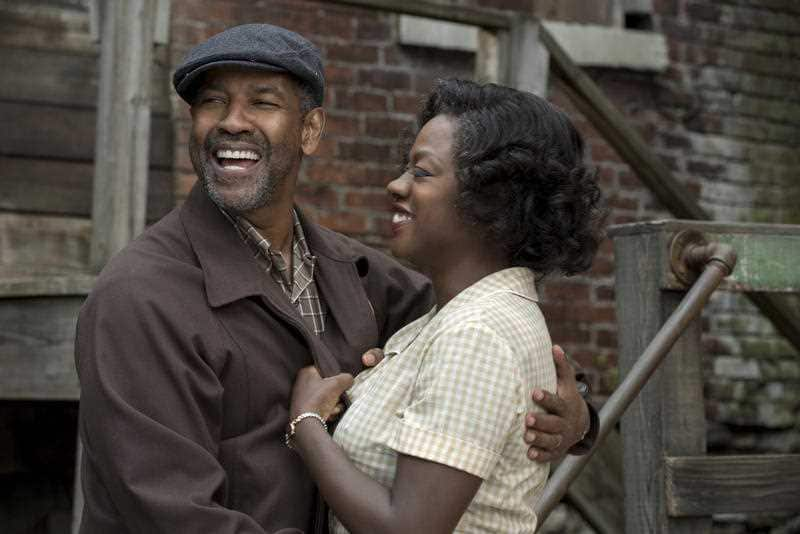For all of the forward momentum at the 2017 Oscars, the big screen remains frustratingly segregated. Sure, black thespians can be viable contenders for screen acting’s greatest honour, but chances are they’ll be in it to win it for a “black” movie. Moonlight‘s ensemble was even more monochromatic than La La Land’s.
Meanwhile, television has evolved into a bastion of integration over segregation. Sex and the City’s Sarah Jessica Parker may still be living in a New York without black people in Divorce, her latest TV series. And Girls continues to relegate people of colour to boyfriend-of-the-week guest-star status – a trend begun by future Atlanta star Donald Glover during season two. But, these are increasingly outliers on the small screen. Broadly, TV hasn’t been so colourful since the ’70s heyday of sitcoms like Good Times, The Jeffersons, and Sanford and Son.
Awards shows diversify
The proof was in the winners at last year’s Emmy Awards. An unprecedented number of actors of colour – including American Crime’s Regina King, The People v. O.J. Simpson’s Courtney B. Vance and Sterling K. Brown, Mr. Robot’s Rami Malek, and Masters of None’s Aziz Ansari – took home prizes. Diversity also ruled at this year’s Golden Globes, with big wins for Atlanta (Best Television Series – Musical or Comedy), Donald Glover and Black-ish star Tracee Ellis Ross.
Over on the movie side of things, however, black creatives may no longer be languishing at the back of the bus, but they're more or less still stuck in their own section. Economics play a major role in this. Despite the commercial success leading box office draws like Denzel Washington and Will Smith have enjoyed, Hollywood continues to cling to the idea that black actors don’t sell movie tickets, especially overseas.

Sadly, the assumption about black stars’ international box-office clout isn’t entirely unfounded. Although Hidden Figures grossed more at the North American box office than any other Best Picture Oscar nominee ($204 million and still counting at the beginning of March), its overseas take was $41 million compared to La La Land’s $290 million.
A-listers may rule at the cinema, but success on television rides less on star power than on concept and execution. Many of TV’s biggest hits in recent decades, from Seinfeld and Friends to The Big Bang Theory and Modern Family to Black-ish and Atlanta, were launched without the benefit of a single marquee name. The shows made the stars.
Unfortunately, black performers haven’t always reaped the benefits of TV’s success model. After the groundbreaking success of The Cosby Show in the ’80s, they were largely missing from the ’90s biggest hits, confined mostly to B series on C networks. It wasn’t until the mid-’00s that shows like Weeds, Grey’s Anatomy, and True Blood began to flip the black-or-white trend with more integrated main casts.
Australia's getting on board
The after-effect can now be seen on Australian TV, which introduced the world’s first black Bachelor in 2014 (season two’s Blake Garvey). In the US, there’s yet to be a black Bachelor, unless you count last season of the drama series UnREAL. Black power is flexing once again on the new season of The Voice, as the arrival of new coaches Seal and Kelly Rowland makes the panel 50 per cent black.
Scripted Aussie TV is diversifying, too. Welcome to the Habibs presents the comedic exploits of an Australian-Lebanese family, while Logie-winning Australian-Lebanese actor Dirass Firani is a key cast member on House Husbands. The Logies and the AACTAs have also anointed Indigenous performers like Miranda Tapsill and Jessica Mauboy in recent years for their work on scripted series.
Interestingly, if any black-themed Best Picture nominee will help bring movie studios around to the way TV execs think about diversity, it probably won’t be Moonlight but rather Hidden Figures. The smash biopic about three black female mathematicians in the 1960s had a more integrated cast than any of the other black-themed Oscar contenders, with A-list white actors Kevin Costner, Fargo’s Kirsten Dunst and The Big Bang Theory’s Jim Parsons in second-tier roles.
That exactly how TV rolls these days. Hollywood still has a long way to go before it looks like Atlanta, but thanks to television and Hidden Figures, cinema now has the effective diversity blueprint it needs. May the movie studios use it wisely and finally snap out of the la la land of its all-white fantasies.
Atlanta is streaming now on SBS On Demand:
